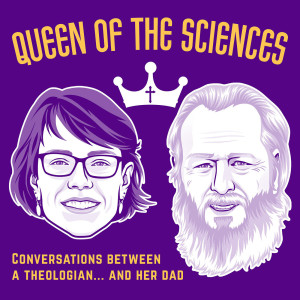
Tuesday Jul 16, 2019
Baptism, Infant and Otherwise
Who can or should get baptized, at what age, and how? Is baptism our work or God's work? How can you remember your baptism when you don't remember getting baptized—or how should you think about a baptism you do remember when you've fallen away from the faith and then returned?
In this episode Dad and I try to move the conversation beyond petty legalisms of all kinds toward a strong teaching and practice of baptism with some real heft to it and prospects for ecumenical agreement to boot. No one can accuse us of aiming too low...
1. On liturgical renewal, see Aidan Kavanaugh, The Shape of Baptism.
2. For more on the difference between John’s baptism and Christian baptism, see my article “Water Baptism and Spirit Baptism in Luke-Acts: Another Reading of the Evidence.” More generally on the topic of baptism, see my article “Still Life with Baptism.”
3. The Greek word that means both “from above” and “again” in John 3:7 is ἄνωθεν (anōthen).
4. For Luther on baptism, see “Concerning Rebaptism” in Luther’s Works vol. 40 and the relevant section in the Large Catechism; note also his invocation of Deuteronomy in the Introduction to the Large Catechism: “And if this were not sufficient to admonish us to read the Catechism daily, yet we should feel sufficiently constrained by the command of God alone, who solemnly enjoins in Deut. 6:6ff that we should always meditate upon His precepts, sitting, walking, standing, lying down, and rising, and have them before our eyes and in our hands as a constant mark and sign.”
5. For more on worship in Luther’s Wittenberg, see Martin Brecht, Martin Luther: Shaping and Defining the Reformation 1521–1532, chapter 7, pp. 251-292.
6. The Latin phrase ordo salutis means “order of salvation” and refers to the various schemas of the precise order in which the various stages of salvation have to take place.
7. For Dad on baptism, see Beloved Community, Chapter 3, pp. 19 –292.
8. Karl Barth discusses “indiscriminate infant baptism” in Church Dogmatics IV.4 pp. 1–39; see Dad's discussion of it in Beloved Community, 270–281.
9. Volkskirche means the “people’s church,” defined primarily by its relationship to the state and, in Nazi Germany, by ethnicity. Bekennende Kirche means “confessing church,” and refers to the protest community that Dietrich Bonhoeffer among others belonged to against a political and racial basis for church.
10. For Menno Simons, see Dad's Beloved Community, pp. 260-270.
11. Timothy George is the Dean of Beeson Divinity School and has done lots of great work to interpret the Reformation for American Baptists especially; see for example his book Theology of the Reformers.
More about us at sarahhinlickywilson.com and paulhinlicky.com!
No comments yet. Be the first to say something!